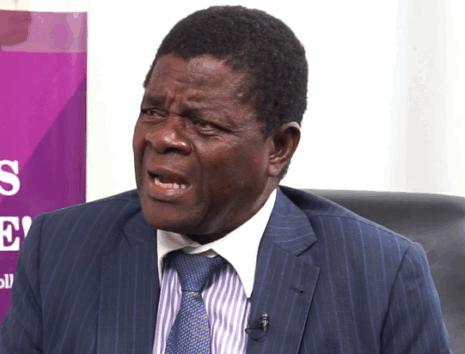Former Director of the Ghana School of Law, Mr Kwaku Ansah-Asare has called for a constitutional review to provide a clearer definition of “stated misbehaviour,” under Article 146 of the 1992 Constitution.
To him, this should be separated from penalties for justices and the Chief Justice, and that presidential influence in judicial appointments should also be removed by amending Articles 144 and 153.
Commenting on last week's removal of Chief Justice Gertrude Araba Esaaba Sackey Torkornoo from office, he said the process was a lawful step under the 1992 Constitution but said Justice Torkornoo was a “victim of many circumstances.”
Mr Ansah-Asare was speaking as a panel member on the television programme, Key Points on TV3 on Saturday, [September 6, 2025],
Mr Ansah-Asare linked the removal to a number of factors, including former President John Dramani Mahama’s earlier meeting with National Democratic Congress (NDC) lawyers to discuss concerns about the judiciary, the absence of a clear constitutional definition for “stated misbehaviour,” and criticism that greeted the nomination of Justice Torkornoo out of 10 judges for the post.
“The former Chief Justice Gertrude Araba Torkornoo was a victim of many circumstances,” Mr Ansah-Asare said.
Justice Torkornoo’s removal took effect on September 1, 2025, after President Mahama acted on the recommendation of a five-member committee chaired by Justice Gabriel Scott Pwamang.
The committee, set up under Article 146(6), investigated a petition by Mr Daniel Ofori and found grounds of stated misbehaviour. The allegations included the misappropriation of more than GH¢337,000 on foreign travels by extending per diems to family members, arbitrary reassignment of cases, dismissal of judicial staff over minor offences, selective fast-tracking of cases, and directing national security to seize computers at the High Court.
Mr Ansah-Asare said the most serious allegation was Mrs Torkornoo’s attempt to use a provision in the Civil Service Act to recommend the appointment of five justices to the Supreme Court, which he described as “judicial dishonesty.”
He argued that this contravened Section 7 of the Judicial Service Act, 2020 (Act 1057). “If there was any stated misbehaviour, I will rely on that and say it was sufficient,” he stated, adding that it amounted to seeking judicial appointments “by fraud.”
While acknowledging that “the law is the law” and that the Chief Justice contravened constitutional provisions under Article 125(4), Mr Ansah-Asare criticised the speed with which the president acted on the committee’s report. “The president acted too swiftly,” he said.
He suggested that President Mahama could have delayed his decision, sought further advice, or considered a more lenient option that would have allowed Justice Torkornoo to retire with benefits after 21 years of service.
He proposed that the president might have relied on Article 72 to grant clemency or on Article 146(11) to revoke the suspension, questioning whether “it is equitable that she should go home penniless.”
Mr Ansah-Asare further called for a constitutional review to provide a clearer definition of “stated misbehaviour,” separate penalties for justices and the Chief Justice, and remove presidential influence in judicial appointments by amending Articles 144 and 153.

